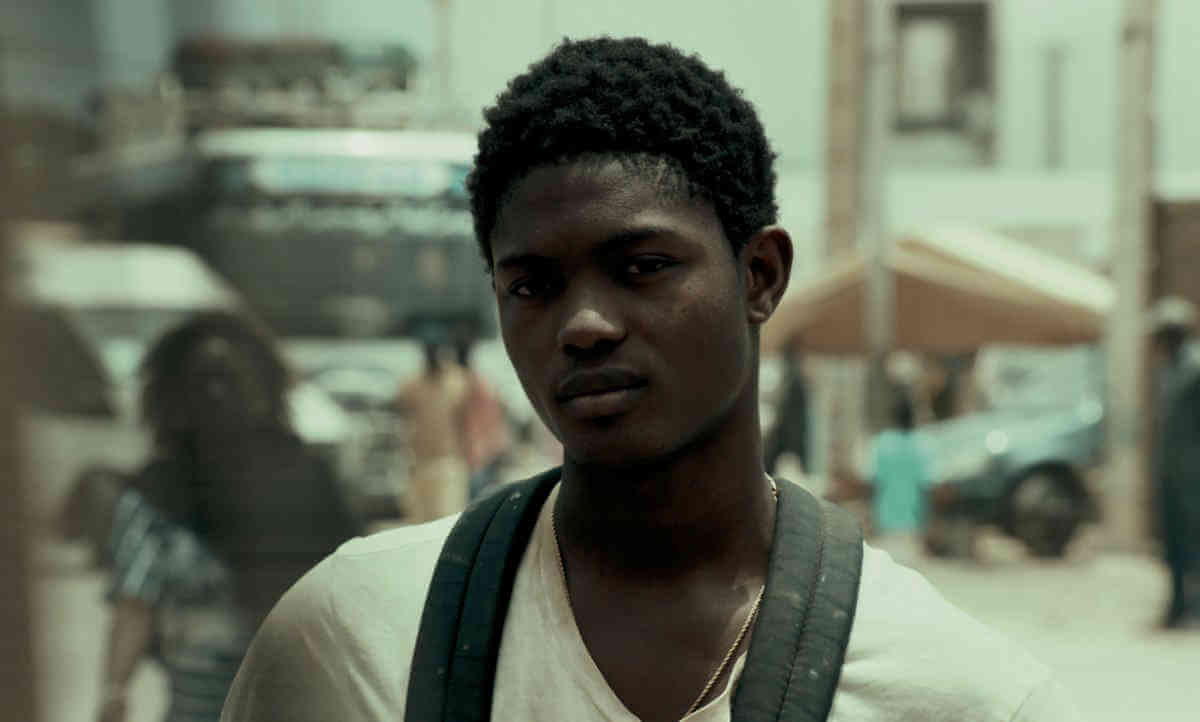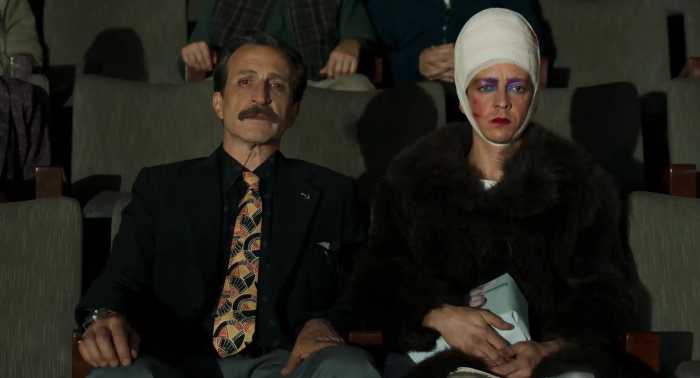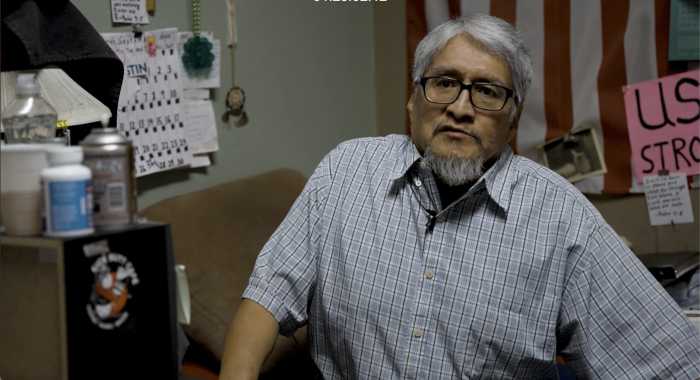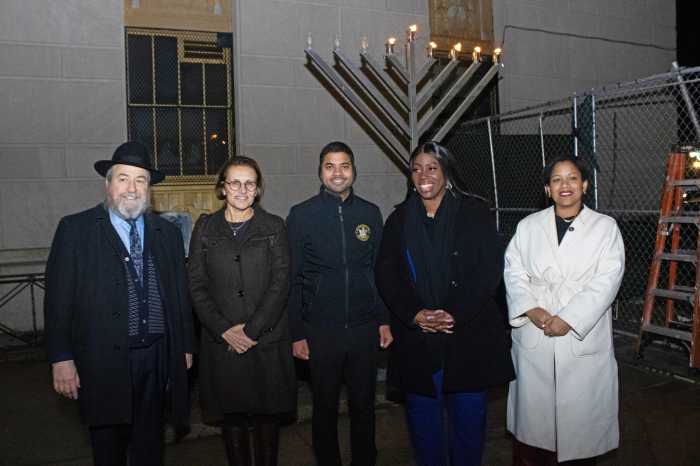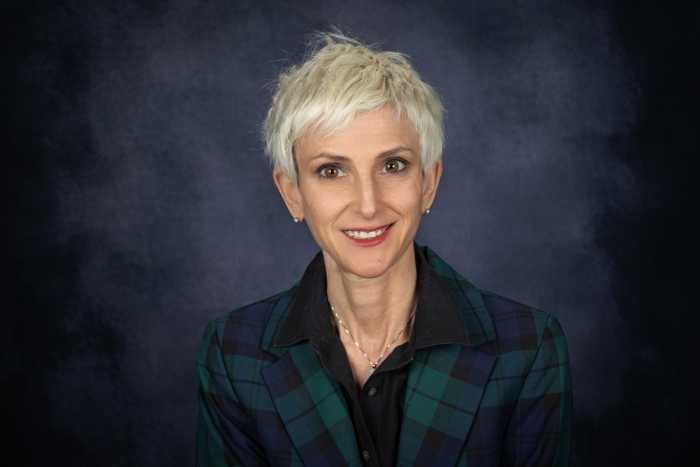French director Mati Diop’s “Atlantics,” set in Senegal, describes a quest for freedom that plays in simple terms — the desire to love the person one chooses and to work a job that’s not exploitative. But the film’s characters have to leave reality behind for their goals to be lived out. Many of its characters even have to die to accomplish their quests. The opening scenes promise a brand of Global South neo-neo-realism that’s very familiar on the festival circuit, but thankfully Diop has far more imagination, turning toward the ghost story.
A tower is being built in a Dakar suburb, but its construction workers are being ripped off. Angered by management’s refusal to pay them, they become fed up with poverty in Senegal and try emigrating by boat to Spain. Souleiman (Ibrahima Traoré) leaves behind his lover Ada (Mama Sané), who is in fact another man’s fiancé, having been promised to in an arranged marriage without knowing him. Souleiman’s boat capsizes, and the men are presumed dead. But as Ada plans for the wedding, Dakar is gripped by mysterious fires. Strange events hint that Souleiman’s spirit may have returned.
Much of “Atlantics” takes place by a beach in Dakar, and the film’s title indicates the importance the sea plays in it. It’s full of images of crashing waves, sometimes as a backdrop but often depicted in a more abstract way. The sound of crashing waves plays over the closing credits. For West Africans, the Atlantic has a tragic connotation. Many among their ancestors were kidnapped across the ocean to become slaves in North America, and in recent years scores of immigrants have tried to navigate from Africa to Europe by sea, sometimes losing their lives in the attempt. “Atlantics” imagines an Africa where men and women can return from the sea with the ability to take their lives back.
“Atlantics” pulls ideas from sci-fi and horror. Its idea of life in Dakar slips into myth (drawing on the Islamic concept of the djinn, a spirit born of fire) and fantasy. Diop plays with lush green and blue lights that look like laser projections. The film rhymes with Bertrand Bonello’s “Zombi Child,” which played alongside it at this year’s New York Film Festival. Both suggest that it’s necessary to depart from realism to accurately depict life in former French colonies. “Atlantics” flirts with imagery out of a zombie film, which could be insulting in a different context: black people with white contact lenses, possessed by the spirits of the dead. But this film sees something positive in this nebulous state.
Diop’s first short, made 10 years ago, was called “Atlantiques” and showed young men talking about their experiences in Europe. She’s the niece of the great Senegalese director Djibril Diop Mambéty, whose classic 1973 “Touki Bouki” is an obvious touchstone for her. Her short “A Thousand Suns” profiled its lead actor, Magaye Niang. “Touki Bouki” depicted a couple who dream of finding freedom in France, showing the pitfalls and ironies of their plan to escape. “Atlantics” shows how the pressure to leave Africa persists to this day.
“Atlantics” is concerned about the women left behind when men emigrate from Senegal, keeping its eye on Ada and her female friends. Diop doesn’t unleash her full lyrical potential until the film’s second half. In addition to her filmmaking, she worked as an actor, making a splash in Claire Denis’ “35 Shots of Rum.” The mix of dreamlike and tactile images owes something to Denis, the pace allowing one to luxuriate in the setting. Fatima Al Qadiri’ s subdued score propels the mood without ever trying to dominate the film.
Diop has likened Ada and Souleiman to an African Romeo and Juliet, saying she wanted to create an equally iconic couple. If the film is concerned with the pressures that lead Africans to leave for Europe under dangerous circumstances and the traditions that force women to marry men they don’t love, it avoids the received notions that come with those realities. In the end, the love story feels more central to Diop’s mission than her politics, as she figures out how her couple can stay together. “Atlantics” doesn’t have much interest in explaining itself, but its romanticism resonates long after the film ends.
ATLANTICS | Directed by Mati Diop | In Wolof and French with English subtitles | Netflix | Museum of Modern Art, 11 W. 53rd St. | Nov. 22-28; Netflix streaming begins Nov. 29| moma.org


